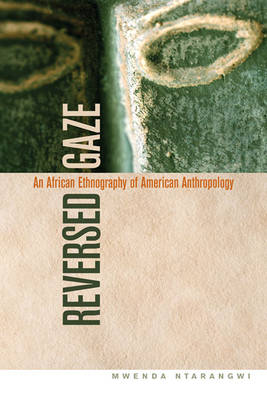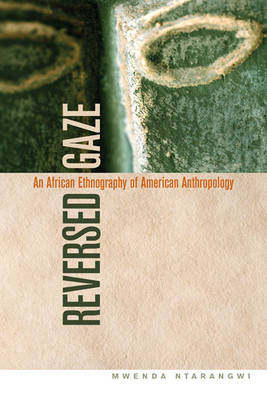
- Afhalen na 1 uur in een winkel met voorraad
- Gratis thuislevering in België vanaf € 30
- Ruim aanbod met 7 miljoen producten
- Afhalen na 1 uur in een winkel met voorraad
- Gratis thuislevering in België vanaf € 30
- Ruim aanbod met 7 miljoen producten
Zoeken
€ 27,45
+ 54 punten
Omschrijving
Deftly illustrating how life circumstances can influence ethnographic fieldwork, Mwenda Ntarangwi focuses on his experiences as a Kenyan anthropology student and professional anthropologist practicing in the United States and Africa. Whereas Western anthropologists often study non-Western cultures, Mwenda Ntarangwi reverses these common roles and studies the Western culture of anthropology from an outsider's viewpoint while considering larger debates about race, class, power, and the representation of the "other." Tracing his own immersion into American anthropology, Ntarangwi identifies textbooks, ethnographies, coursework, professional meetings, and feedback from colleagues and mentors that were key to his development. Reversed Gaze enters into a growing anthropological conversation on representation and self-reflexivity that ethnographers have come to regard as standard anthropological practice, opening up new dialogues in the field by allowing anthropologists to see the role played by subjective positions in shaping knowledge production and consumption. Recognizing the cultural and racial biases that shape anthropological study, this book reveals the potential for diverse participation and more democratic decision making in the identity and process of the profession.
Specificaties
Betrokkenen
- Auteur(s):
- Uitgeverij:
Inhoud
- Aantal bladzijden:
- 176
- Taal:
- Engels
Eigenschappen
- Productcode (EAN):
- 9780252077692
- Verschijningsdatum:
- 1/11/2010
- Uitvoering:
- Paperback
- Formaat:
- Trade paperback (VS)
- Afmetingen:
- 150 mm x 226 mm
- Gewicht:
- 299 g

Alleen bij Standaard Boekhandel
+ 54 punten op je klantenkaart van Standaard Boekhandel
Beoordelingen
We publiceren alleen reviews die voldoen aan de voorwaarden voor reviews. Bekijk onze voorwaarden voor reviews.











